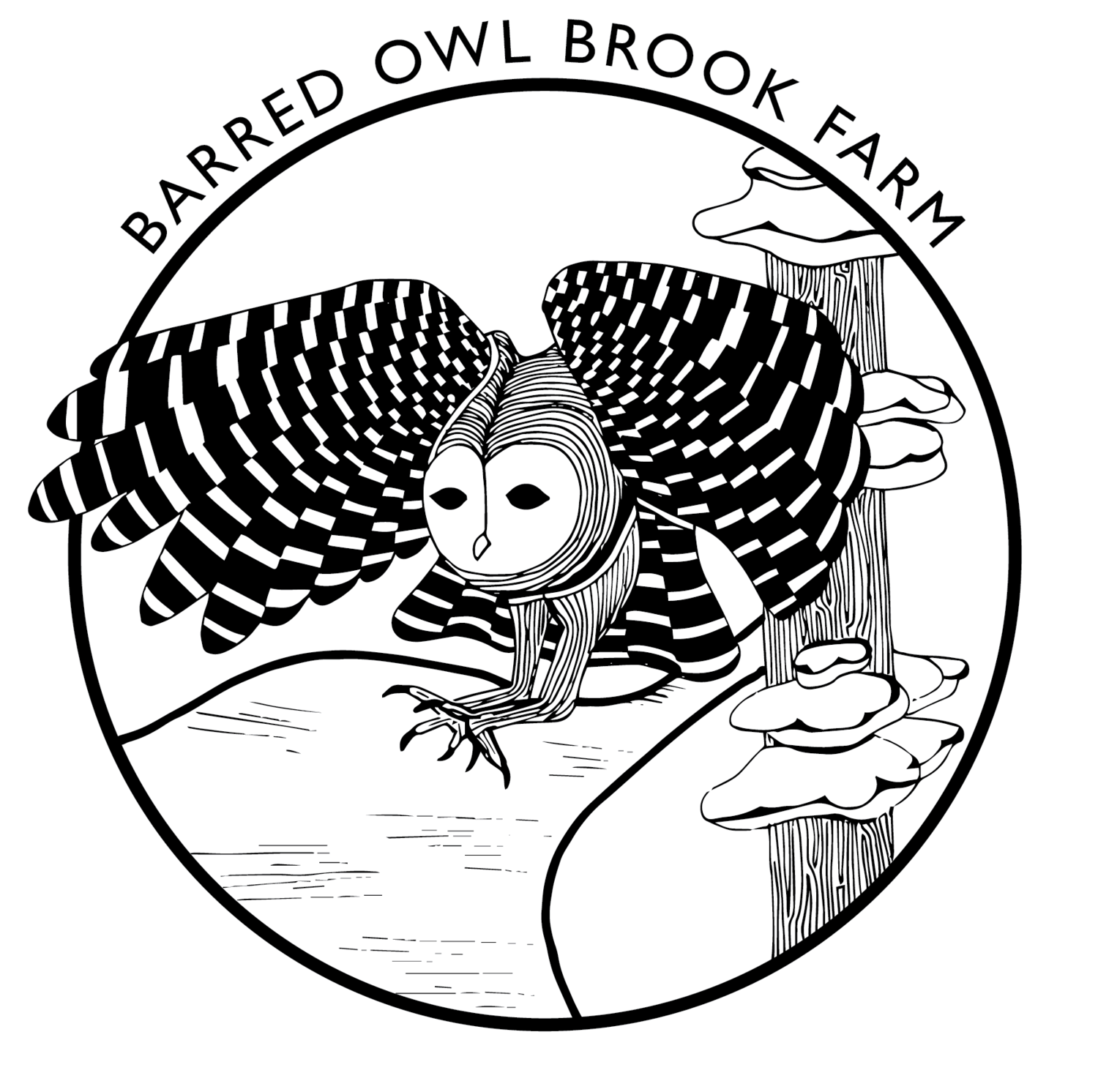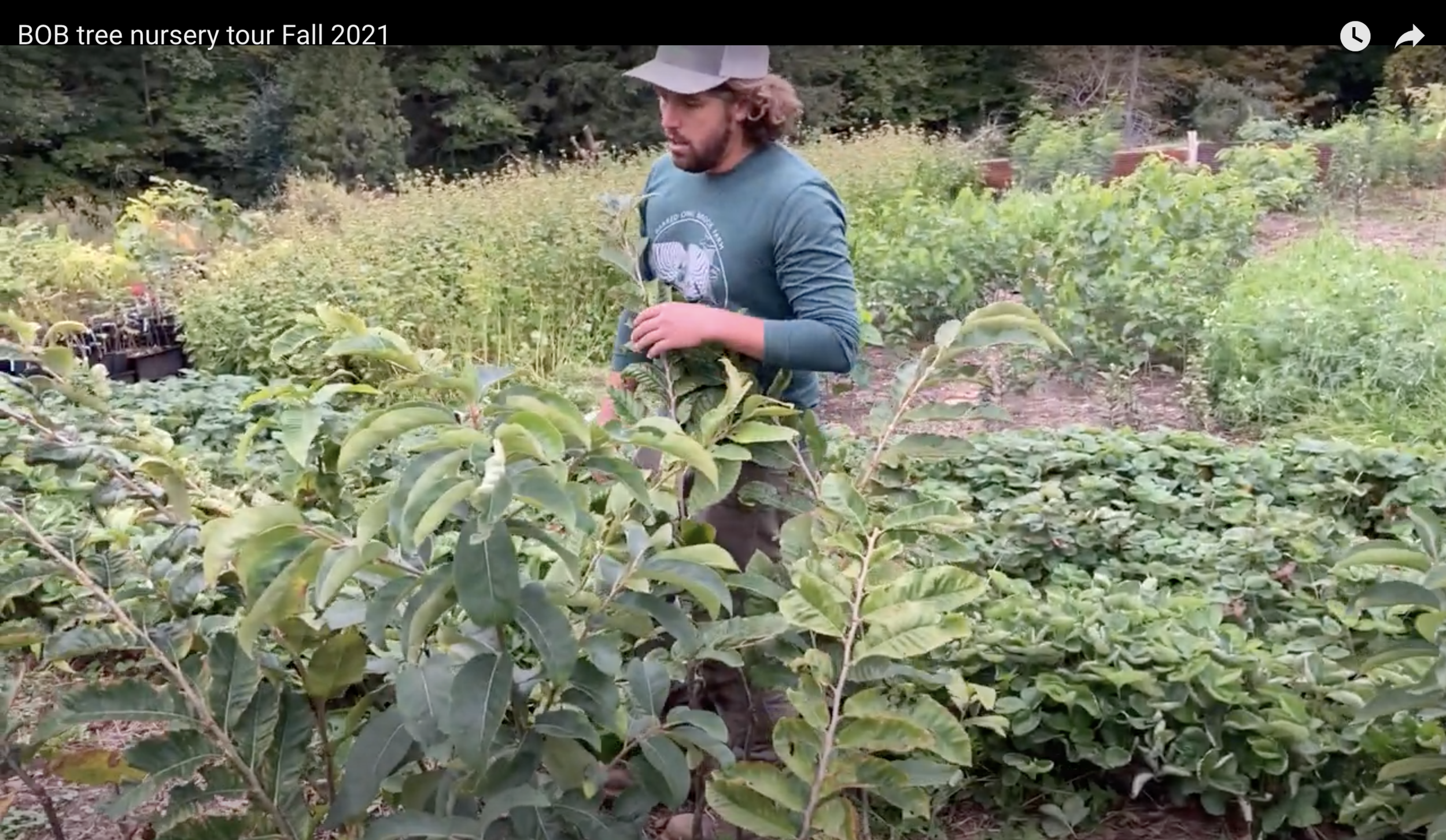
About the Nursery
Production practices
We raise our nursery stock utilizing low-input propagation techniques with a focus on growing plants with robust, healthy root systems. Unfortunately, this is not common in the nursery trade where top-heavy, weak-rooted plants hopped up on synthetic fertilizers are all too common.
By contrast, our bare root trees are grown in nursery beds teaming with earthworms and heavily amended with composted animal bedding, wood chips and wine cap stropharia fungi.
We do not use synthetic fertilizers on any of our plants. Alternatively, we rely on cover crops and the back-end nutrient services of our hogs, ducks and sheep to provide fertility.
We also do not use any synthetic pesticides, though we do utilize organic pesticides such as Bt and BotaniGard during severe pest outbreaks.
Instead of spraying, we opt to focus our efforts on biological pest control. At certain times of year we enlist our ducks for slug patrol duty. We have found that strategically rotating them through the nursery beds goes a long way in keeping pest pressure in check. Plus we get some nutrient application and duck eggs to boot!
An on-farm collection of tree crop genetics to improve food system resiliency in the Adirondack region
Identifying profitable tree crop genetics adapted to the harsh growing conditions of the Adirondack region and making them available to farmers is essential for building a more resilient food system.
Yet despite the significant role trees can play in sustainable food, fiber, and fuel production, many potential tree crops have historically been overlooked by government and institutional breeding programs. As a result, few proven arboreal allies currently exist for farmers in the Northeast looking to add trees to their farm landscape profitably and in a way that doesn’t rely on extensive chemical, labor and mechanical inputs.
In an effort to identify the species and varieties best suited for the Adirondack region, we are continuously searching for and obtaining plant material suited for our USDA zone 4b/5a temperate climate. We are propagating and planting these plants around the farm and evaluating their potential to serve as part of a profitable tree crop enterprise.
When you purchase plants from our nursery you are supporting and participating in our efforts to identify and propagate tree crops to serve as the backbone of a more resilient and equitable food system.
A tree nursery = essential farm infrastructure
The seed for an on-farm tree nursery was planted when I attended a silvopasture workshop put on by Steve Gabriel of Wellspring Forest Farm in fall 2018. At the workshop, Steve proposed that in order to ensure a steady supply of affordable, high quality, and regionally adapted plant material for an agroforestry enterprise, a tree nursery might be considered essential farm infrastructure.
Upon returning home from the workshop with a newfound fire in my belly, I began collecting seeds from a few stately black locust trees towering above Ernie’s Market in Westport, NY. That winter, we collected willow and elderberry cuttings from plants around the farm property. In the spring we planted what we had collected in deep-mulched garden beds, and by the fall of 2019 we found ourselves with an overabundance of healthy plants to start planting around the farm and to share with our friends.
Having been sufficiently bitten by the propagation bug and encouraged by our first year success, we decided to expand the nursery and began dedicating more of our garden space to tree propagation in the spring of 2020. Each year we continue to expand our growing capacity and add new plants to our collection.
BOB tree nursery tour fall 2022
Take a virtual tour of the propagation nursery beds at Barred Owl Brook where we are growing mulberry, persimmon, chestnut, hazelnut, oak, honey locust, and more!
BOB tree nursery tour fall 2021
Take a virtual tour of the south garden at Barred Owl Brook!




